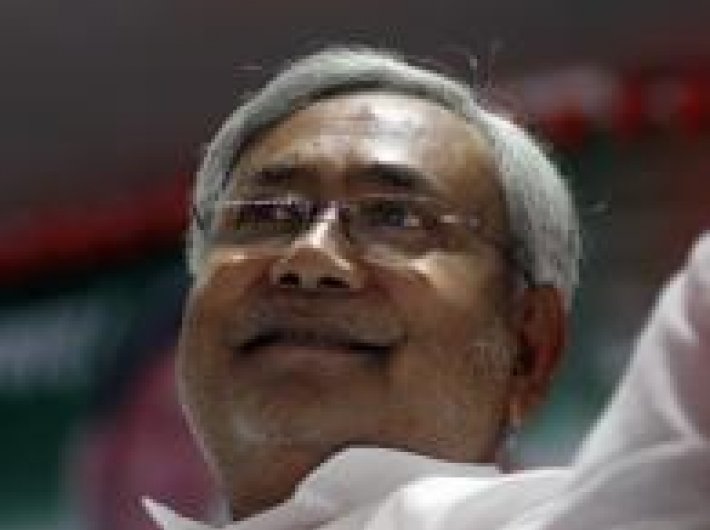Bihar governor’s decision to defer no-confidence motion against CM Manjhi till February 20 encourages defection from JD (U) ranks
Clever logic and smart sentences come naturally to smart alecs. If they happen to be lawyers-turned-politicians, their skills are often honed to perfection. Bihar governor Keshri Nath Tripathi easily fits this description.
Tripathi was an Allahabad-based lawyer whose acquaintance with the law and constitution was quite profound, which, in turn, made him eminently qualified to violate their spirit with impunity. His current stance on the Bihar political imbroglio is consistent with his earlier conduct as a speaker of the UP assembly where he legitimised horse-trading by describing a split in a political party as a “continuous process”, during the BJP-BSP regime in the late 1990s.
Like many governors of dubious shades, Tripathi has been acting like a cat’s paw for the Centre. His decision to defer the no-confidence motion against Bihar chief minister Jitan Ram Manjhi till February 20 when the House meets for the budget session is nothing short of encouraging defection from the JD (U) ranks. As of now, former chief minister Nitish Kumar has a comfortable majority in the Bihar assembly.
But there is enough evidence to prove that the BJP was using musclemen of other political hues to rope in legislators by offering them huge sums of money and promising tickets from the BJP. Nitish Kumar has alleged Tripathi was doing the bidding of the prime minister’s office. The allegations are not without basis, as those aware of Bihar politics would testify to the shady manner in which politics is being conducted in Bihar.
That the office of the governor becomes the fulcrum of subversive politics is not a healthy sign. Tripathi may not be short of memory as how in the 1990s then UP governor Romesh Bhandari had denied the BJP its rightful chance of forming the state government. He would also not be oblivious to the fact that Bhandari’s clever move to install Jagdambika Pal (now a BJP MP) as UP chief minister, after sacking Kalyan Singh, had boomeranged on then United Front government and the Congress. The BJP registered an impressive presence in the 1998 and 1999 Lok Sabha elections. Bhandari had sullied the office of the governor beyond repair. Tripathi walking the same path comes as a surprise.
In fact, the farce being enacted in the name of democracy in Bihar draws directly from the BJP’s UP experience. In 1995, when the BJP-BSP government led by Mayawati was formed in UP, Mayawati was asked to prove majority by then governor Motilal Vora. When the House met, the speaker declared the assembly illegal before adjourning it sine die. But even before speaker Dhani Ram Varma could get up from his chair, another leader from the BSP, Barkhu Ram Verma, rushed to the chair and started conducting the House (as a protem speaker). While Mulayam Singh’s Samajwadi Party boycotted the House, Mayawati proved her majority.
Tripathi has been encouraging the Bihar political course to go the UP way. Like in UP, a no-trust motion against the Bihar assembly speaker has already been moved and will take precedence over all other motions. For the first time, there is an attempt to conduct a secret ballot which would be in violation of the constitution that makes anti-defection provisions. The secret ballot is intended to protect legislators from the anti-defection law. Curiously enough, the Patna high court has also intervened on the technicality of the election of Nitish Kumar as the legislature party leader of JD(U), leaving scope for manipulation.
The tragedy is in the manner in which the crucial issue of governance is being handled in Bihar. No doubt, Nitish Kumar deserves to be hauled over the coals for his indiscretion over selecting Manjhi as his successor following his drubbing in the 2014 Lok Sabha polls. Kumar found himself at the receiving end of people’s ire with dwindling credibility in his second term. His political actions may be bizarre too, but they are in consonance with propriety and constitution. He would have faced an uphill task in his effort to restore his image should he be returned as the chief minister of the state. But lawyers have an uncanny ability to complicate any easily soluble problems. And there are enough reasons to believe that the current Bihar crisis is being handled more technically than politically. This will really be worse than a tragedy for a state reeling under constant governance deficit.

